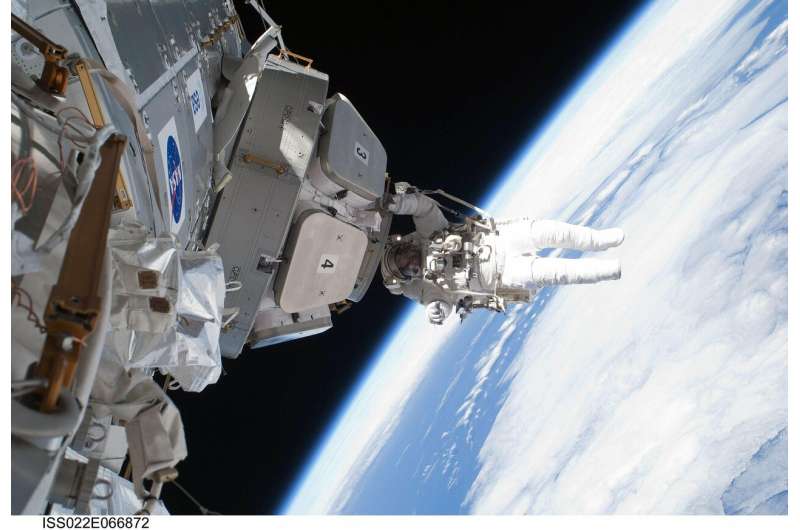Credit: Pixabay/CC0 Public Domain
An international team of researchers has found that long space flights can lead to some minor brain reorganization but no neurodegeneration. In their paper published in the journal Science Advances, the group describes their study of the brains of cosmonauts returning from long-term missions aboard the International Space Station, and what they found.
Prior research has shown that long-term space missions can lead to bone and muscle degeneration due to the impact of extended freefall on the body. Some studies have also shown that it can lead to minor loss of visual acuity due to fluid buildup in the eyes. In this new effort, the researchers wanted to know what effects such missions might have on the brains of those who remain in space for long periods of time.
To find out, the researchers conducted a special type of MRI scan on 11 male Russian cosmonauts who had together averaged six months in space aboard the ISS—before and after they returned from their missions—and then again seven months later.
The researchers scanned the cosmonauts' brains with diffusion MRI, a process that involves taking multiple scans at once. In this case, they took 153 scans during a single session. Each of the scans has slightly different parameters, which allows for creating images in multiple ways. As an example, one of the scans had a parameter called the b value, where a certain signal is lowered during scanning to record decay of the material being scanned—in this case, brain matter.
The researchers found that the brain reorients itself during long space missions, essentially floating into different parts of the skull. This resulted in slight reorganization of the brain itself in response to the reorientation. The cosmonauts brains also responded in other ways to the unusual living environment—they acquired new motor skills and had better balance and coordination. The researchers also found that the reorientation did not result in neurodegeneration and that normal orientation was nearly restored seven months after the cosmonauts returned to Earth. They also confirmed fluid build-up behind the eyes as the reason for the loss of visual acuity during long space flights.
More information: Steven Jillings et al. Macro- and microstructural changes in cosmonauts' brains after long-duration spaceflight, Science Advances (2020). DOI: 10.1126/sciadv.aaz9488
Journal information: Science Advances
© 2020 Science X Network























